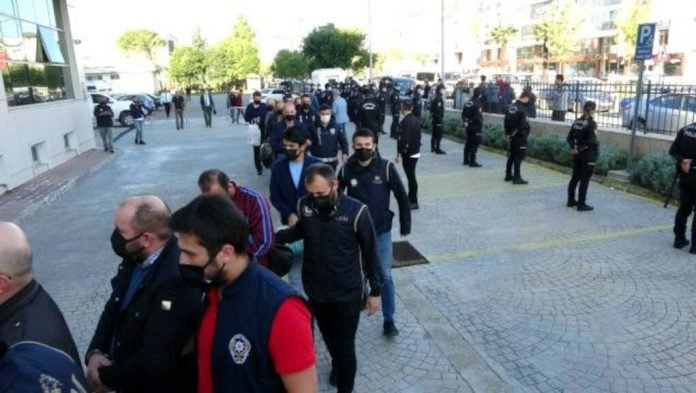Turkish authorities have over the past week ordered the detention of 113 people due to alleged links to the faith-based Gülen movement, according to local media reports.
On Monday Interior Minister Ali Yerlikaya announced on X that 74 people had been detained across 27 provinces, including individuals allegedly involved in the movement’s infiltration of the police and military. Yerlikaya also said the detainees were identified through their use of ByLock, a mobile messaging application, as well as through evidence based on payphone records.
On Tuesday eight people, including former military and police officers as well as doctors who were dismissed from their jobs by government decrees in the aftermath of a coup attempt in 2016, were detained by the police after the İzmir Chief Public Prosecutor’s Office issued detention warrants. These individuals were accused of being affiliated with the movement and were detained while allegedly attempting to leave Turkey.
On Wednesday detention warrants for seven people including a military officer and a police officer, were issued by the Ankara Chief Public Prosecutor’s Office. The detainees were accused of involvement in the movement’s alleged infiltration of the military by stealing the questions to the personnel entrance exams. The police are looking for the individuals.
On the same day 14 more people, were detained in Ankara. These individuals were accused of affiliation with the movement and staying in apartments linked to the movement’s network.
Additionally, detention warrants for 10 people were issued on Thursday by the İzmir Chief Public Prosecutor’s Office. The police detained six of the suspects, who were accused of depositing money at the Gülen-linked Bank Asya and using ByLock to communicate.
Turkish President Recep Tayyip Erdoğan has been targeting followers of the Gülen movement since the corruption investigations of 2013, which implicated then-prime minister Erdoğan, his family members and his inner circle.
Dismissing the investigations as a Gülenist coup and conspiracy against his government, Erdoğan designated the movement as a terrorist organization and began to target its members. He intensified the crackdown on the movement following the abortive putsch in 2016 that he accused Gülen of masterminding. Gülen and the movement strongly deny involvement in the coup attempt or any terrorist activity.
In addition to the thousands who were jailed, scores of other Gülen movement followers had to flee Turkey to avoid the government crackdown.
ByLock, once widely available online, has been considered a secret tool of communication among supporters of the Gülen movement, since the coup attempt despite the lack of any evidence that ByLock messages were related to the abortive putsch.
Turkish authorities continue to detain and prosecute people over ByLock use in defiance of a landmark European Court of Human Rights decision in late 2023 which concluded that the use of the app cannot be considered as evidence.
The so-called “pay phone investigations” are based on call records. The prosecutors assume that a member of the Gülen movement used the same pay phone to call all his contacts consecutively. Based on that assumption, when an alleged member of the movement is found in call records, it is assumed that other numbers called right before or after that call also belong to people with Gülen links.
The Turkish government accepted such daily activities as having an account at or depositing money in a Gülen movement affiliated bank, working at any institutions linked to the movement or subscribing to certain newspapers and magazines as benchmarks for identifying and arresting tens of thousands alleged members of the movement on charges of membership in a terrorist organization.
Turkish authorities routinely rely on witness statements as evidence to identify and prosecute members of the group.
The defendants in the trials against the movement are often encouraged to benefit from the country’s repentance laws allowing for reduced penalties in exchange for denouncing other members of the group.
In recent years there have also been many reports about the alleged use of torture and ill-treatment in custody to coerce detainees into becoming informants and incriminating others.
Since the coup attempt, a total of 705,172 people have been investigated on terrorism or coup-related charges due to their alleged links to the movement. There are currently 13,251 people in prison who are in pre-trial detention or convicted of terrorism in Gülen-linked trials.
Between June 2023 and June 2024, Turkish authorities carried out a total of 5,543 police operations and arrested 1,595 people linked to the movement.
















